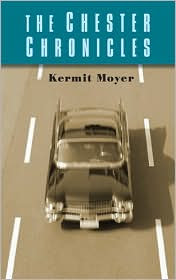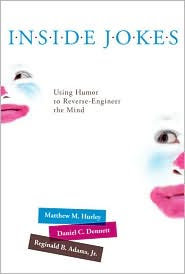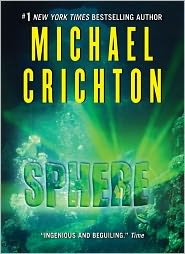 Sandra Beasley
Sandra Beasley is the author of the poetry collections
I Was the Jukebox, winner of the 2009 Barnard Women Poets Prize, and
Theories of Falling, which won the 2007 New Issues Poetry Prize. Her honors include a DCCAH Individual Artist Fellowship, the Friends of Literature Prize from the Poetry Foundation, and the Maureen Egen Writers Exchange Award from Poets & Writers, Inc. She lives in Washington, D.C., where her prose has been featured in the
Washington Post Magazine.
Her new book is the memoir,
Don't Kill the Birthday Girl: Tales from an Allergic Life.
A few weeks ago I asked Beasley what she was reading. Her reply:
Usually, when an old friend says “Oh, I know another writer; I have to introduce you!” I groan inwardly. All writers do not get along, any more than all lawyers or all veterinarians. But I agreed to show up at the Big Hunt—a DC bar where he was scheduled to read—reasoning that the skeeball and $4 drafts were reason enough. And in this case, my high school friend’s sister’s new husband turned out to be not only a compelling writer, but a very cool guy: Joseph Riippi.
than all lawyers or all veterinarians. But I agreed to show up at the Big Hunt—a DC bar where he was scheduled to read—reasoning that the skeeball and $4 drafts were reason enough. And in this case, my high school friend’s sister’s new husband turned out to be not only a compelling writer, but a very cool guy: Joseph Riippi.
The Orange Suitcase is described in terms of “stories,” but many of the sections have the brevity and lyric intensity of prose poems. In a series of snapshots that move back and forth between modern day and a grandparent’s generation, Riippi creates a portrait of young man’s ascent from firing BB guns to exchanging I Dos, interrogating along the way what it means to live and to love in New York. A collage of memories, dreams, and non sequiturs, there is not a boring page in this  collection. Even as I write this, I’m thinking Gosh, I need to read it again. I have a feeling we’ll be hearing from this guy for years to come, and that makes me very happy.
collection. Even as I write this, I’m thinking Gosh, I need to read it again. I have a feeling we’ll be hearing from this guy for years to come, and that makes me very happy.
An $8 remaindered hardback of Sherman Alexie’s War Dances was an impulse buy as I roamed the tables of Square Books in Oxford, Mississippi. I’ve been a fan of Alexie’s ever since I first encountered his nimble sestina “The Business of Fancydancing,” but I had not sat down with much of his prose. What I found was a rangy, funny, delightfully idiosyncratic hodgepodge anchored by two stunning stories: “War Dances” and “The Ballad of Paul Nonetheless.” Though much of the attention given to Alexie  over the years has focused on his Native American identity, he is a master at the hybrid voice with seamlessly integrates tribal references and mainstream culture. A healing song and a paean to Trader Joe’s are equally at home on these pages.
over the years has focused on his Native American identity, he is a master at the hybrid voice with seamlessly integrates tribal references and mainstream culture. A healing song and a paean to Trader Joe’s are equally at home on these pages.
When my mother gave me the pairing of Meghan O’Rourke’s The Long Goodbye and Jill Bialosky’s History of a Suicide as a May birthday gift, she purposefully wrapped the package in paper strewn with flowers and smiley faces. “To counterbalance the mood,” she admitted. And it’s true: Bialosky’s History of a Suicide: My Sister's Unfinished Life is a devastating read, particularly because  I share her 10-year gap with a younger sister. As I turned the last page, I had to fight the impulse for a midnight call to my sister in Beijing, just to tell her I love her.
I share her 10-year gap with a younger sister. As I turned the last page, I had to fight the impulse for a midnight call to my sister in Beijing, just to tell her I love her.
But to respond to the story’s raw emotional potency would be to shortchange the book’s craft: this is thoughtfully constructed, researched, elegant meditation on the origins of a suicide and the impact it has on a family. Though Bialosky’s identity as a poet and an editor shapes her thoughts—authors ranging from William Shakespeare to Sylvia Plath make cameos—she wears her literary expertise lightly, refusing to over-romanticize or retreat into figurative language. As a reader, I was deeply moved. As a fellow memoirist, I was inspired.
Learn more about Beasley and her work at
her website and
blog, Chicks Dig Poetry.
Writers Read: Sandra Beasley (Febraury 2008).
--Marshal Zeringue
 Samuel Park is an Assistant Professor of English at Columbia College Chicago. He is a graduate of Stanford and the University of Southern California, where he earned his doctorate in English. He is the author of the novella Shakespeare's Sonnets and the writer-director of the short film of the same name, which was an official selection of numerous domestic and international film festivals.
Samuel Park is an Assistant Professor of English at Columbia College Chicago. He is a graduate of Stanford and the University of Southern California, where he earned his doctorate in English. He is the author of the novella Shakespeare's Sonnets and the writer-director of the short film of the same name, which was an official selection of numerous domestic and international film festivals.Kwok offers a surprising but satisfying twist on the expected happy ending. I’m also rereading Janice Y. K. Lee’s wonderful The Piano Teacher, about a young English woman discovering her true self in the aftermath of World War II. I love, in particular, Lee’s descriptions of the heroine, Clare Pendleton. They absolutely fly off the page. As we see the effect of Hong Kong on Clare, Lee catches her changing in front of the reader’s eyes, and that sense of metamorphosis infuses every page with drama and conflict. Lee is brilliant at many things, but especially in connecting character with setting.






















































